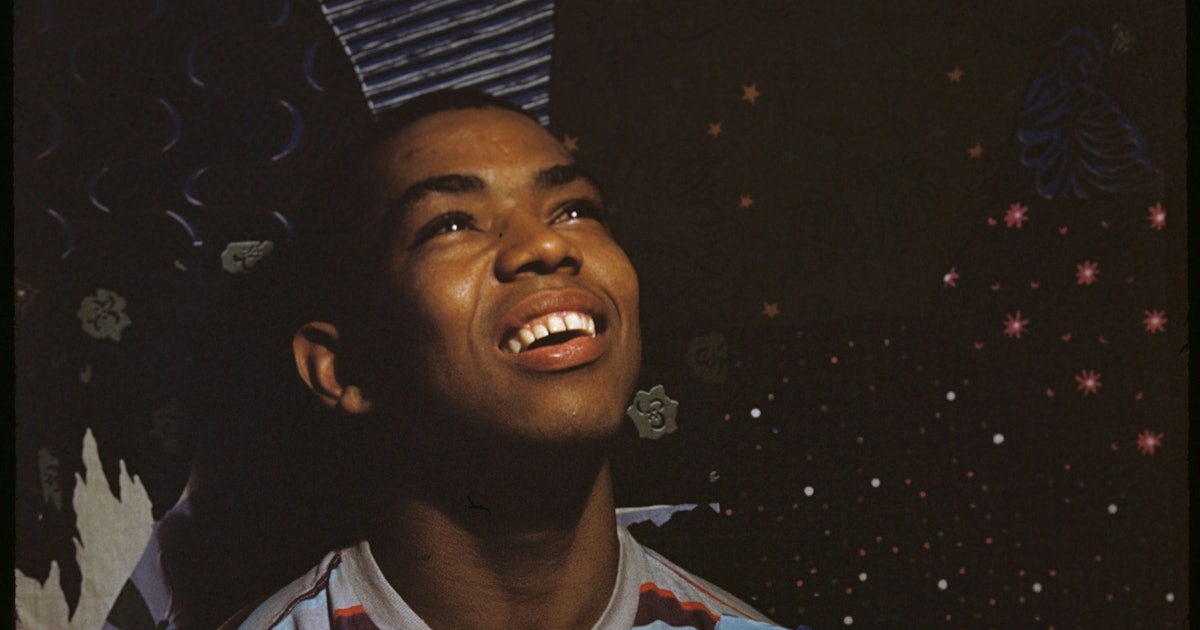Alvin Ailey is one of the most accomplished and revered dancers in history. And yet, there has never been a wide-ranging exhibition chronicling his singular life, style of dance, company, and the impact he left on American culture.
“Around 2018, there was a range of shows at museums about dance: the Lincoln Kirstein ballet, the Judson Dance Theater, Merce Cunningham,” Adrienne Edwards, senior curator at The Whitney Museum in New York City, told me recently. “I remember thinking to myself, ‘Why not Ailey? Why hasn’t a museum done a show about him?’”
Edwards and The Whitney took matters into their own hands. And on September 25, Edges of Ailey, the first large-scale museum exhibition to explore the legendary choreographer and activist’s life and work, will open. On view through February 9, 2025, the multimedia show features painting, sculpture, photography, drawings, video, and other artworks inspired by Ailey. Created by the likes of Carrie Mae Weems, Betye Saar, Jean-Michel Basquiat, Lorna Simpson, and many more artists, the pieces on view were made before, during, and after the dancer’s lifetime (he was born in Texas in 1931, and died in New York City in 1989 at 58 years old).
Carmen de Lavallade and Alvin Ailey at Jacobs Pillow, 1961.
Photo by John Lindquist. © Harvard Theatre Collection, Houghton Library, Harvard University
There are also personal materials that belonged to Ailey—journals, photographs, poems—included in the show, which Edwards found by combing through at least ten archives. The journals especially contained “surprise after surprise,” Edwards said. “You would have one page talking about ideas for dances, character studies, how to stage things, costume designs. And then on the other page, you would have his to-do list, or reflections on lovers, or these missives that he would write for himself: make more decisions quickly.” In this way, the exhibition is not only an homage to Ailey, but a picture of his life and how dance fit into all the other creative pursuits he chased.
A look at the installation of Edges of Ailey at The Whitney.
Courtesy of The Whitney

Whittling down the list of artists involved in the show proved quite a feat (there are currently 83 artists represented, and Edwards admits that number might not count as being “whittled down”).
“I kept very close not only to what Ailey said, but who he was,” the curator adds. “We thought about: what other artists share the themes that Ailey presented in his work? The Caribbean, Brazil, the Black diaspora, spirituality, migration, liberation—these themes are really important to a whole bunch of different artists. They’re meta-narratives for the way we talk about Black cultural life.” It was also important for the show to include a range of “artists who are self-taught and coming out of a southern American vernacular,” Edwards adds, “because in some ways, that’s exactly who Mr. Ailey was. You did not go to an MFA program in dance in the early 1950s.”
Creating this exhibition led to a myriad of revelations for Edwards personally. She highlighted the fact that, no matter which artist, dancer, choreographer, or photographer she spoke to, “everybody has an Ailey story. It’s kind of incredible. Lorna Simpson, for instance, talked to me about the fact that she studied dance and had complex feelings around that. So she decided to make this video about working with Ailey dancers exclusively, as a way of reflecting back on that period in her life.”
Lorna Simpson, Momentum, 2011.
© Lorna Simpson. Courtesy the artist and Hauser & Wirth

The show is filled with nods like these, and doing so meant staying true to Ailey—as a figure, an artist, and a human being. “Mr. Ailey was fundamentally a curious person,” Edwards added. “I have deep reverence for him. The fact that he was so successful and went through so much just makes you not take for granted what life is about. We get up every day with a range of possibilities in front of us.”

